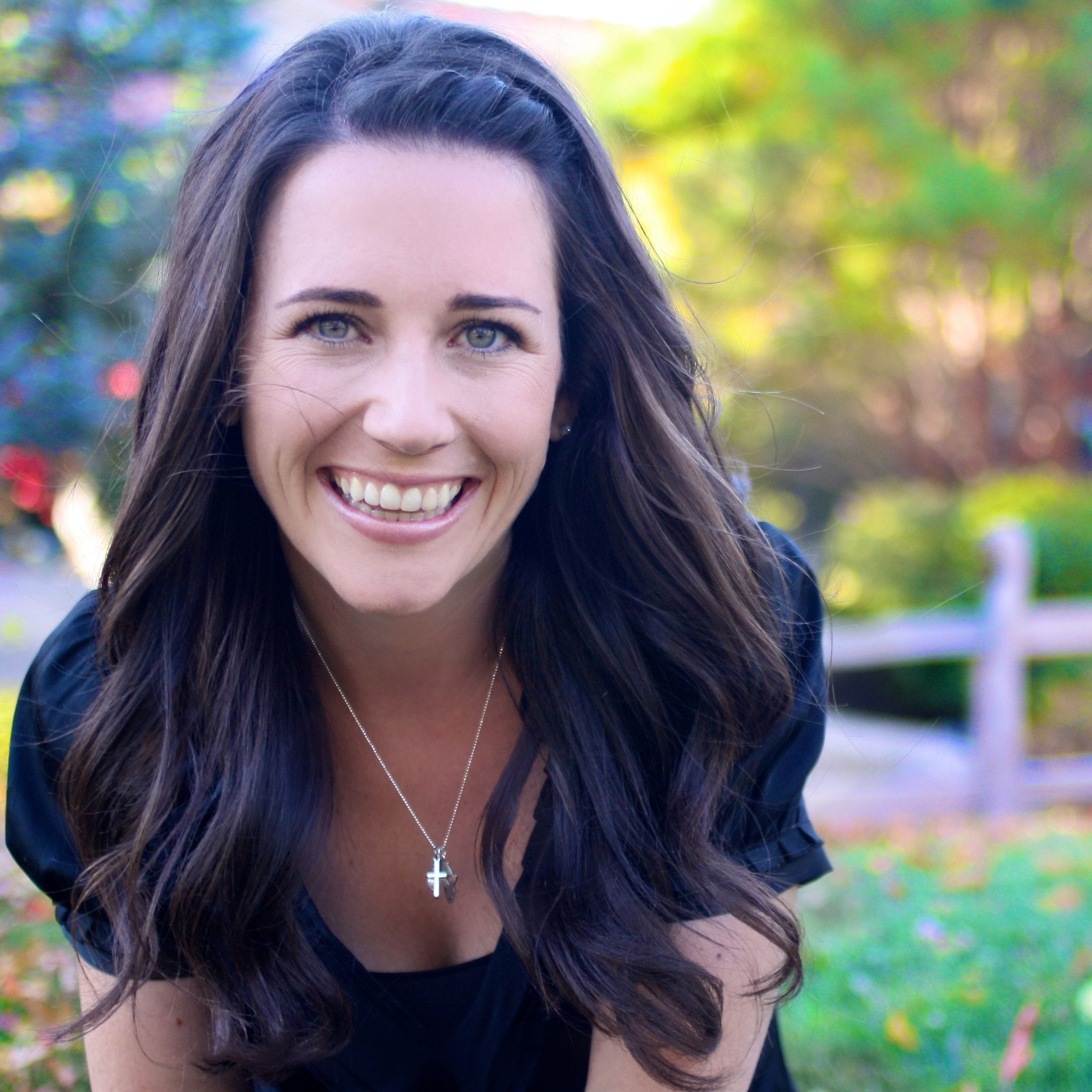
Never once did it occur to me that my thoughts may not be true. According to my line of thinking, every thought I had was a reflection of who I was. We are what we think, I thought. Good thoughts are thought by good people, and bad or even evil thoughts are thought by bad.
I had considered myself to be in the good category, but then my thought life took a turn, and as my thoughts became increasingly dark, I became deeply disturbed.
What is wrong with me?I wondered each time the thoughts came. How could I have thought that?
I was afraid. Afraid of what others would think or do if they knew what I was thinking. Afraid of who I was becoming. Afraid I was going insane. Afraid of myself, really. My thoughts had become so dark that I didn’t trust myself any longer. All I wanted was to turn my thoughts off, but the more I tried, the more they reverberated in my head.
I had become my own worst enemy as I fell to anxiety and depression. It was awful. Words cannot even begin to explain what it was like in that place––surrounded by darkness, paralyzed by fear.
But if there’s one thing I know it is that light shines brightest in the darkest of dark. When we let the light of Christ shine into our hearts and minds, we will most definitely see darkness flee. It begins with our thoughts––and not just for those of us who have experienced mental illness, but for every one of us.
After coming to Christ, I learned––over time, by the power of the Holy Spirit––to be more intentional with my thoughts. In fact, there are 9 steps I’ve taken in order to come to a place of restored mind and heart.
1. We must fill our minds with truth.
Truth is found in the Word of God, and all other things must be measured by it. Proverbs 16:20 says, “Whoever gives thought to the Word will discover good, and blessed is he who trusts in the Lord.” When we inundate our minds with scripture, we allow truth to reign in us, and we will be most assuredly be blessed.
2. We must set our minds on the things of God, not the things of this earth.
Something incredible happens when we align our thoughts with God’s. Colossians 3:2 says, “Set your minds on things that are above, not on things that are on earth.” We are called to set our minds. To choose where we place our focus. That coupled with the power of the Holy Spirit allows us the ability to think the things God would have us think.
3. We must understand that not all thoughts are true.
Yes, scripture tells us “out of the heart come evil thoughts,” but we have an enemy. One who seeks to “steal and kill and destroy” (John 10:10). It is our enemy’s primary goal to get us thinking wrong thoughts.
Our thoughts affect our emotions and our emotions affect our actions. Our enemy knows there’s a good chance that, if he can get inside our heads, we will fall to temptation. Just look at the tactics he used with Jesus while Jesus was being tempted in the wilderness for forty days and forty nights. Satan used truth, quoted scripture, to tempt Jesus to sway from the path the Father willed for Him. Satan twisted the truth, in an attempt to get Jesus to think wrong thoughts. Obviously, his tactics did not work on Jesus, but even now, he tries the same schemes with us, and so we must remember that not every thought we think is truth.
4. We must consciously choose which thoughts to embrace and which to cast out.
2 Corinthians 10:5 says, “We destroy arguments and every lofty opinion raised against the knowledge of God, and take every thought captive to obey Christ.” Every thought. Using scripture as our guide, we must learn to examine our thoughts to determine whether or not they are true. Whether or not they are beneficial. Whether or not they build us, and others, up or tear us down. We must learn to embrace only thoughts that are true, good, and beneficial. All others must be cast out and replaced with the good.
But telling ourselves, “Don’t think that…don’t think that…don’t think that,” will only make us think that thought all the more. Trying to rid ourselves of a lie or a bad thought only focuses our attention on the very thing we’re trying to get rid of. And so instead, we must learn to reframe how we think about that thought. If you identify a lie, you replace it with the truth. You may still think the lie, but every time that lie crosses your mind, you choose to tell yourself the truth. When you think a thought that is true, but not beneficial, you’ll need to learn to reframe your thinking. You’ll need to choose to think about that thought in a more positive light. This, however, is not “the power of positive thinking.” This is aligning your thoughts with God’s.
All of this definitely takes practice. Training your mind, by the power of the Spirit, to be a more active participant in your thought life takes time, but it is incredibly rewarding.
5. We must inundate our minds with good.
Philippians 4:8-9 says, “Finally, brothers, whatever is true, whatever is honorable, whatever is just, whatever is pure, whatever is lovely, whatever is commendable, if there is any excellence, if there is anything worthy of praise, think about these things. What you have learned and received and heard and seen in me—practice these things, and the God of peace will be with you.”
Paul was onto something here. He had learned to train his mind to think of all things good, even when faced with trials. This scripture was penned while sitting in a jail cell, and yet Paul was able to experience joy. God gave him that joy, but his joy came through his commitment to the instructions in the verses above. And so, like Paul, we too must practice these things.
6. We must fight fear with faith.
We all experience fear, at one time or another, and in these moments, our thoughts can most certainly get the best of us. We can learn a lot, however, about how to handle fear from an Old Testament story about King Jehoshaphat.
“Jehoshaphat was afraid,” 2 Chronicles 20:3 says, when told of an army coming against him. But the very first thing this man did was he “set his face to seek the Lord…” (20:3). Instead of getting all up in his own head when presented with fear, Jehoshaphat sought the Lord. Later on, we see Jehoshaphat pray, saying “For we are powerless… We do not know what to do, but our eyes are on You” (20:12).
We must fight fear with faith, believing that God will work all things according to His good purposes. Following Jehoshaphat’s example, we set our eyes and our thoughts on God, not our circumstances as we seek the Lord, pray, and worship.
7. We must fight anxiety with prayer, thanksgiving, and worship.
Philippians 4:6-7 says, “Do not be anxious about anything, but in everything by prayer and supplication with thanksgiving let your requests be made known to God. And the peace of God, which surpasses all understanding, will guard your hearts and your minds in Christ Jesus.” This was the first verse the Lord gave me when the anxiety raged within my heart. I printed it out, pasted it on my bathroom mirror, and tried my best to do what God was calling me to do through it.
It’s next to impossible to be thankful and negative at the same time. All those negative, self-defeating thoughts will fall to the wayside the more we begin to realize just how blessed we really are. I’ve taken to numbering my blessings, with pen and paper.
8. We must learn contentment.
During Paul’s imprisonment, he wrote, “I have learned in whatever situation I am to be content. I know how to be brought low, and I know how to abound. In any and every circumstance, I have learned the secret of facing plenty and hunger, abundance and need. I can do all things through Christ who strengthens me” (Philippians 4:12-13).
Contentment is an incredible thing. It’s ceasing to seek after more, knowing we have already been given all we need. It’s allowing our thoughts to be at peace, knowing we will be okay regardless of what life throws at us.
9. We must think less of ourselves and more of others.
I don’t know about you, but my thoughts tend to be more about myself than others. It’s sickening to even write that, but I’m pretty sure I’m not alone in this. I’ve learned that the more I allow myself to think about myself, the more I am discontented and self-serving. Philippians 2:3b-5a says, “In humility count others more significant than yourselves. Let each of you look not only to his own interests, but also to the interests of others. Have this mind among yourselves…” Remember, we must set our minds. There is much joy to be had when we lay ourselves aside to love others. When we selflessly consider others more important than ourselves.…
I understand that mental illnesses, such as anxiety and depression, have a chemical component to them, but I also know that our God is creator of all––creator of our bodies, minds, and souls. He is the One who constructed our chemical composition and is fully able to bring it back into balance.
We cannot think ourselves well, only God can heal, but our thought life is the greatest contributor to mental health, not only for those who have experienced mental illness, but for every one of us. We all need right thinking. And so I encourage you today to commit yourself to learning and practicing the discipline of managing your thought life, by the power of the Spirit. And I am fully convinced that, if you do so, your life will never be the same.

For more information about Laurie or to book her for a speaking engagement, please visit her blog, LaurieCoombs.org. And be sure to connect with her on her blog, Twitter, Facebook, and Pinterest.








